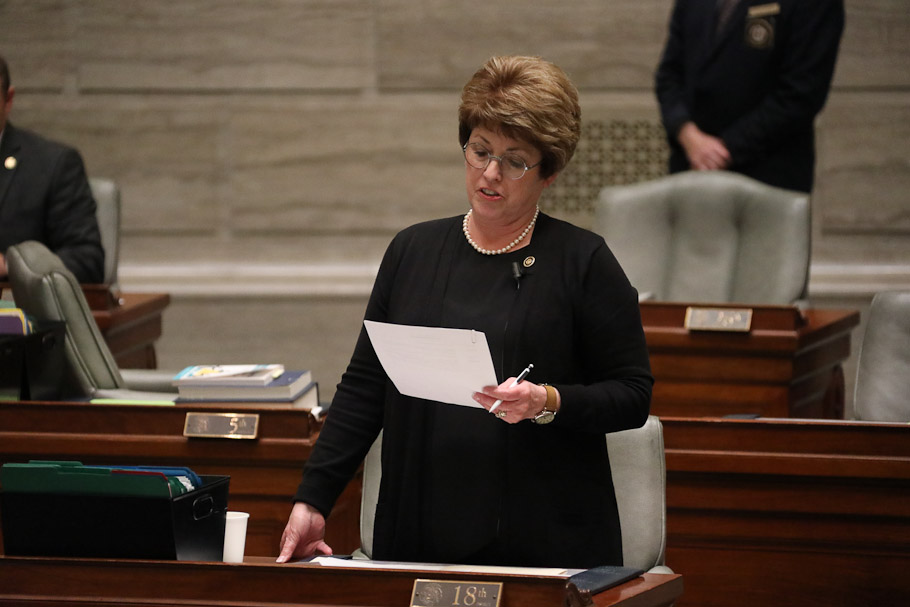Underperforming schools across Missouri could be shut down under a bill pre-filed by Sen. Cindy O’Laughlin last week.
SB 133 would require the Department of Elementary and Secondary Education (DESE) to publish a list of schools annually that perform in the bottom 5 percent of schools for more than three years, according to standards set by the Every Student Succeeds Act (ESSA). Those underperforming schools would then have to take action to transfer students out of the school or work to set up a charter school in the district.
“The current accountability system often results in corrective actions that in reality vary little from standard operating procedure. If a school is failing it seems a new approach is necessary, and this legislation allows for that,” O’Laughlin, a Republican, told The Missouri Times.
O’Laughlin, elected in 2018 to represent SD 18, which covers a significant part of northeastern Missouri, served as the chair of the Senate Education Committee during the 2020 session. She has made education a focal point of her legislative career.
The bill laid out three options for a school that has underperformed for three of the last five years, of which the school would be required to choose one. Schools could close and transfer the students to a higher-performing school in the district, create a new in-district charter school via a partnership with a nonprofit school operator, or reimburse any district or charter school that allows students to transfer for the amount equal to the per-pupil expenditure for the district. This would effectively allow those students to participate in open enrollment in the district.
Included in the ESSA is the Missouri School Improvement Program (MSIP), which measures the success of the state’s schools based on student data in five categories: academic achievement, subgroup academic achievement, attendance, college-and-career readiness (or high school readiness for K-8 schools), and graduation rate.
Per DESE’s website, ESSA is “designed to ensure that all students have a significant opportunity to have a fair and equitable high-quality education and to close educational achievement gaps.”
A spokesman for DESE told The Missouri Times that it is department policy not to comment on pending legislation.
If the bill were to pass, any school distinct with more than 20 percent of students attending a persistently failing school would be required to establish a charter authorizing office, review any charter petitions for the district, approve the petitions, and submit them to the board of education for a vote.
According to DESE, Missouri has 518 school districts and 38 charter schools ranging in enrollment from 23 to 25,670 students, with the state enrolling more than 900,000 students in preschool through grade 12.
Similar legislation was filed earlier this year but it was never heard in committee during the shortened session.

Conner Kerrigan is a writer and communications professional who lives in Columbia. He joined The Missouri Times team as the business manager in late 2020. Originally from Chicago, Conner is a graduate of Millikin University in Decatur.
Contact Conner at conner@themissouritimes.com.






















